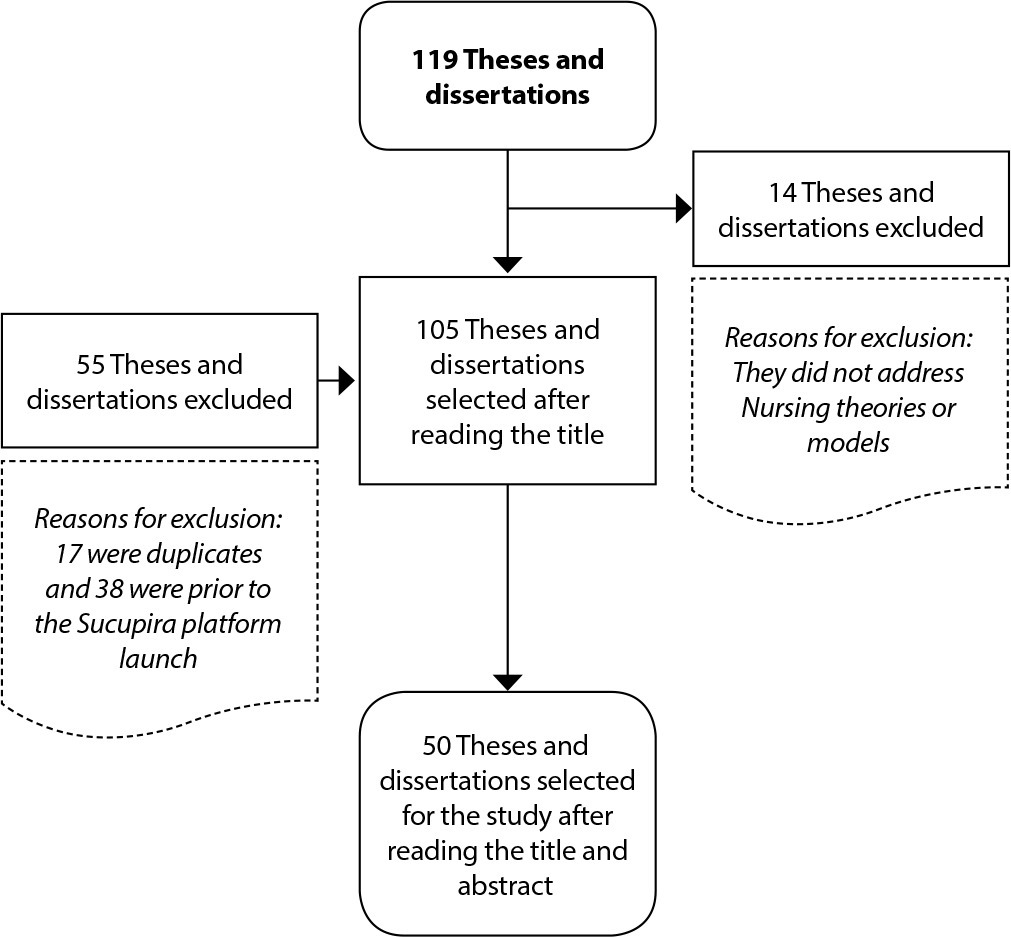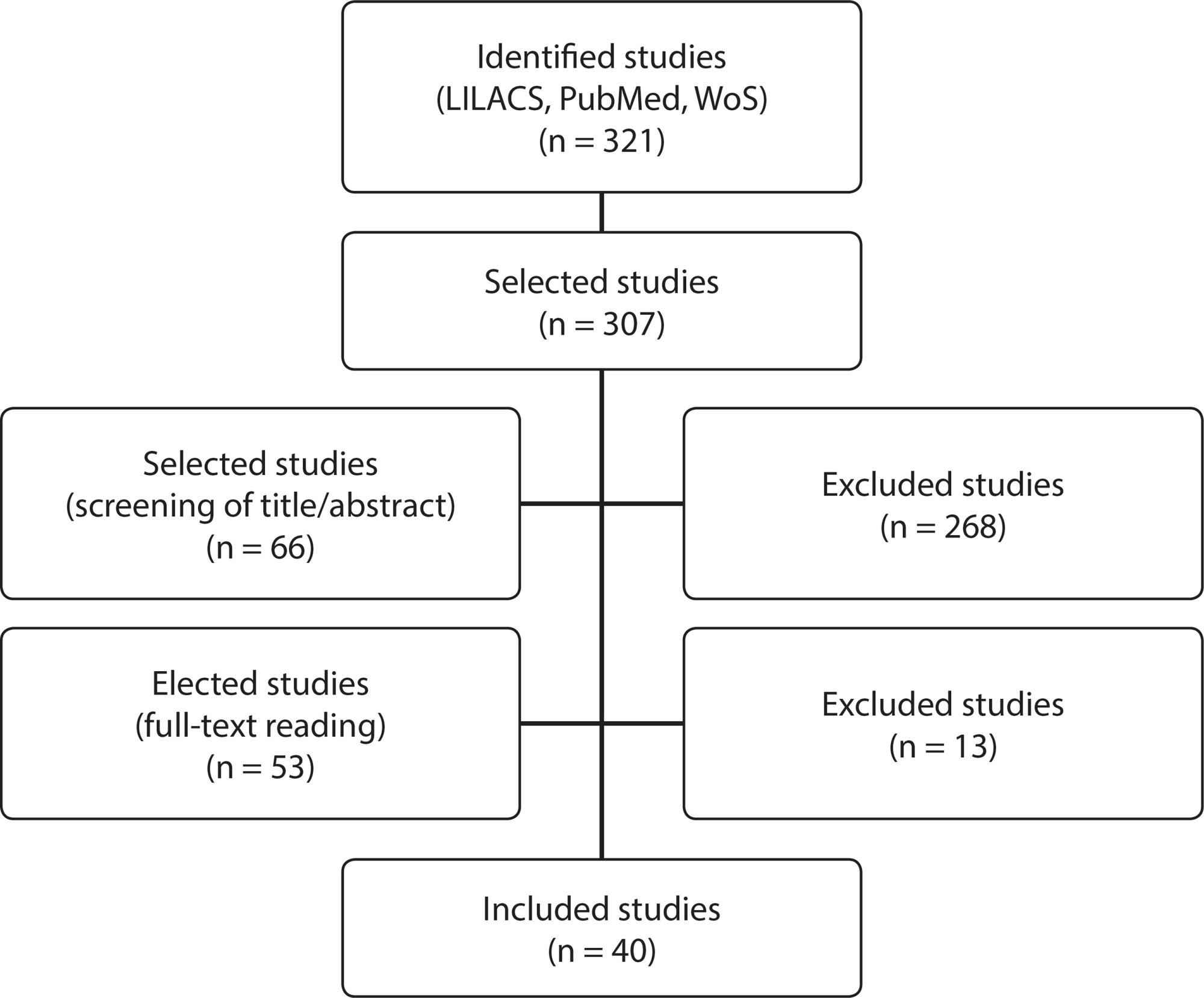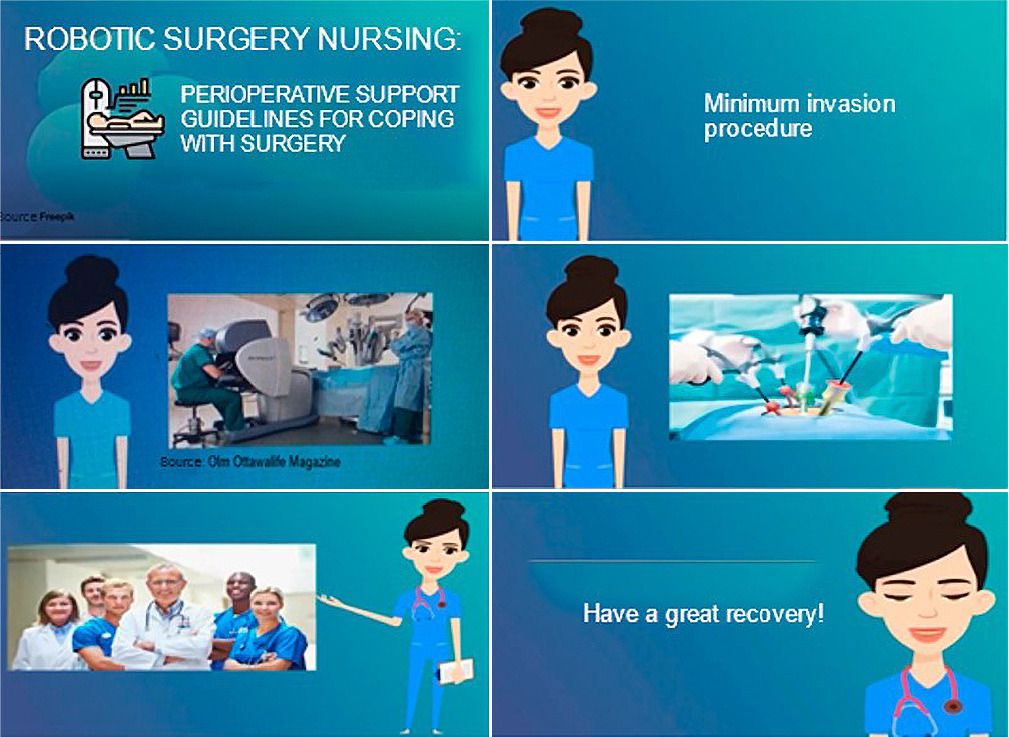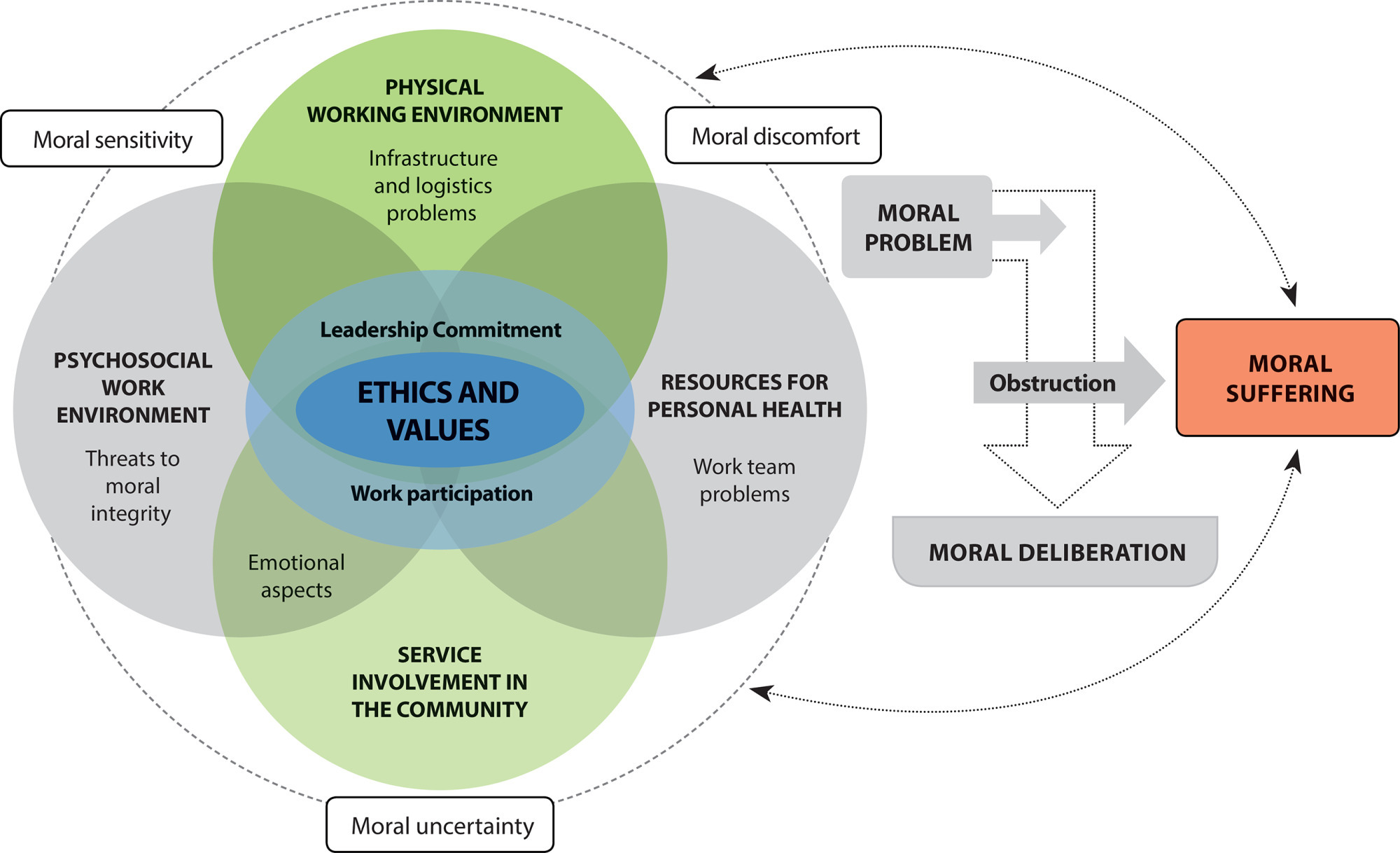-
01-01-2016
Descobertas das Ciências Biológicas e as implicações para a prática da Enfermagem
Revista Brasileira de Enfermagem. 2016;69(4):619-620
Abstract
Descobertas das Ciências Biológicas e as implicações para a prática da Enfermagem
Revista Brasileira de Enfermagem. 2016;69(4):619-620
DOI 10.1590/0034-7167.2016690401i
Views1A produção de conhecimento na área das ciências biológicas, durante muito tempo, foi vista como de responsabilidade e competência exclusivamente de profissionais médicos. Esse cenário alterou-se frente à tendência mundial de aperfeiçoamento dos demais profissionais de saúde, incluindo-se a necessidade de se concretizar a utilização da metodologia da prática baseada em evidência na atuação do […]See more -
01-01-2016
Discoveries of Biological Sciences and their implications for nursing practice
Revista Brasileira de Enfermagem. 2016;69(4):619-620
Abstract
Discoveries of Biological Sciences and their implications for nursing practice
Revista Brasileira de Enfermagem. 2016;69(4):619-620
DOI 10.1590/0034-7167.2016690401i
Views1For the longest time, the production of knowledge in the field of biological sciences was viewed as the exclusive responsibility and competence of medical professionals. This scenario has changed in light of the worldwide trend of improvements in other health professions, which includes the need to implement the use of evidence-based methodology in nursing practice. […]See more -
01-01-2016
The importance of civilian nursing organizations: integrative literature review
Revista Brasileira de Enfermagem. 2016;69(3):610-618
Abstract
The importance of civilian nursing organizations: integrative literature review
Revista Brasileira de Enfermagem. 2016;69(3):610-618
DOI 10.1590/0034-7167.2016690326i
Views0See moreABSTRACT
Objective:
to identify and analyze evidence from studies about the importance of civilian nursing organizations.
Method:
an integrative literature review, for which searches were conducted in the databases LILACS, PubMed/MEDLINE, SciELO, BDENF, and Scopus.
Results:
sixteen articles published between the years 2004-2013 were selected, 68.75% of which were sourced from Brazilian journals and 31.25% from American journals.
Conclusion:
civilian nursing organizations are important and necessary, because they have collaborated decisively in nursing struggles in favor of the working class and society in general, and these contributions influence different axes of professional performance.
-
01-01-2016
Effects from acupuncture in treating anxiety: integrative review
Revista Brasileira de Enfermagem. 2016;69(3):602-609
Abstract
Effects from acupuncture in treating anxiety: integrative review
Revista Brasileira de Enfermagem. 2016;69(3):602-609
DOI 10.1590/0034-7167.2016690325i
Views0See moreABSTRACT
Objective:
to evaluate the scientific evidence that is available in the literature on the effects of acupuncture for treating anxiety and on the quality of such studies.
Method:
the study is an integrative review of CINAHL, LILACS, PUBMED-PICO, SciELO, and The Cochrane Library between 2001 and 2014. Keywords anxiety, acupuncture therapy, acupuncture, and anxiety disorders were combined among themselves to ensure a wide search of primary studies.
Results:
among 514 articles, 67 were selected to be fully read and 19 were included. Among these, 11 were found to have strong evidence levels. Among the six articles about randomized clinical studies, five were found to be of reasonable quality. Two studies used acupuncturist nurses to perform their interventions. Its results showed positive and statistically significant effects from using acupuncture for treating subjects with anxiety.
Conclusion:
acupuncture seems to be a promising treatment for anxiety; however, there is a need for improving the methodological quality of the research on this field.
-
01-01-2016
Palliative care and spirituality: an integrative literature review
Revista Brasileira de Enfermagem. 2016;69(3):591-601
Abstract
Palliative care and spirituality: an integrative literature review
Revista Brasileira de Enfermagem. 2016;69(3):591-601
DOI 10.1590/0034-7167.2016690324i
Views0See moreABSTRACT
Objective:
to analyze scientifi c articles published in international online journals about palliative care and spirituality.
Methods:
an integrative literature review with data collected in September 2014 from the LILACS, SCIELO, MEDLINE/PubMed, and IBECS databases.
Results:
thirty-nine publications were identifi ed and their textual analysis facilitated through four thematic approaches: the meaning of spirituality in the context of palliative care; palliative care and spiritual support; spirituality and relief of pain and other symptoms in patients under palliative care; and instruments to evaluate the spiritual dimension of the scope of palliative care.
Conclusion:
this study examined the relevance of the spiritual dimension in the care of patients with palliative care and the need for developing new studies to disseminate knowledge about this topic.
Descriptors:
Palliative Care; Palliative Care at End of Live; Spirituality; Religion; Health.
-
01-01-2016
Educational technologies to encourage (self) care in postpartum women
Revista Brasileira de Enfermagem. 2016;69(3):582-590
Abstract
Educational technologies to encourage (self) care in postpartum women
Revista Brasileira de Enfermagem. 2016;69(3):582-590
DOI 10.1590/0034-7167.2016690323i
Views0See moreABSTRACT
Objective:
to evaluate national and international literature regarding the use of educational technologies to encourage self care in postpartum women.
Method:
an integrative review of the literature. The articles were collected from the CINAHL, SCOPUS, PubMed, SciELO, LILACS and Cochrane databases; the time period for the articles referred to January/2004 to July/2014; the languages used in the articles were Portuguese, English, Spanish and French; the articles were selected from the following descriptors: postpartum care period, educational technology, nursing and self care. Twenty-seven articles were selected for analysis
Results:
based on the information found, the scales, counseling and home visits were among the most recommended educational technologies.
Conclusion:
the technologies promote communication, but are sometimes dependent on computer and internet access, which hinder their use by low-income women.

-
01-01-2016
Patients with HIV/Aids and ulcer risk: nursing care demands
Revista Brasileira de Enfermagem. 2016;69(3):574-581
Abstract
Patients with HIV/Aids and ulcer risk: nursing care demands
Revista Brasileira de Enfermagem. 2016;69(3):574-581
DOI 10.1590/0034-7167.2016690322i
Views0See moreABSTRACT
Objective:
to analyze the demand for nursing care and the risk of pressure ulcers (PU) of patients with HIV/Aids.
Method:
quantitative survey, carried out from December 2012 to March 2013 in a public hospital of Teresina, state of Piauí, Brazil.
Results:
the sample of 31 patients was predominantly male, mean age 36.6 years, average care demand 49.4%, most showing some risk of developing PU. The variables correlated with PU risk were care demand and clinical outcome (death). Those associated with care demand were age and clinical outcome (death).
Conclusion:
the results showed that patients require moderate nursing care needs and most of them present risk of developing PU.

-
01-01-2016
Lack of anticipated support for care for community-dwelling older adults
Revista Brasileira de Enfermagem. 2016;69(3):566-573
Abstract
Lack of anticipated support for care for community-dwelling older adults
Revista Brasileira de Enfermagem. 2016;69(3):566-573
DOI 10.1590/0034-7167.2016690321
Views0See moreABSTRACT
Objective:
to identify the factors associated with lack of anticipated support for care for community-dwelling older adults.
Method:
this study presents comparison and logistic regression analyses of data from 671 individuals who took part of the multicentric study entitled “Frailty in older Brazilians” – a quantitative, epidemiologic and transversal investigation carried out between 2008 and 2009.
Results:
the subjective evaluation of anticipated support for care for community-dwelling older adults was a good indicator of risk for lack of anticipated support for care in women, older adults who live alone and those with poor self-rated health.
Conclusion:
it is necessary to reflect upon the formal support system currently available for older people in Brazil, considering that those who most frequently presented lack of anticipated support for care are an increasing population. The study also highlights the importance of using subjective methods for the evaluation of the adequacy of older adults’ support network.
-
ORIGINAL ARTICLE03-30-2022
Nursing Theories and Models as theoretical references for Brazilian theses and dissertations: a bibliometric study
Revista Brasileira de Enfermagem. 2022;75(4):e20210201
Abstract
ORIGINAL ARTICLENursing Theories and Models as theoretical references for Brazilian theses and dissertations: a bibliometric study
Revista Brasileira de Enfermagem. 2022;75(4):e20210201
DOI 10.1590/0034-7167-2021-0201
Views0See moreABSTRACT
Objectives:
to map the use of Nursing models and theories utilized as theoretical references in graduate academic Nursing research in Brazil.
Methods:
bibliometrics, performed in the Theses and Dissertations database of the Coordination for the Improvement of Higher Education Personnel, in November, 2020. Data analysis was performed using simple descriptive statistics and lexical analysis, performed using the software: IRAMUTEQ.
Results:
the 50 selected studies were from the field of Nursing, 15 (30%) of which were theses and 35 (70%) were dissertations. 13 Nursing theories and models were identified, used as theoretical references, highlighting Roy’s Adaptation Model in 10 (20%) of the researches. Final Considerations: the study found a great diversity in the use of nursing theories and models as a theoretical framework, which allowed us to identify the areas most researched by nurses and confirmed their application in different specialties and health contexts.

-
REVIEW08-05-2020
Communication of bad news in pediatrics: integrative review
Revista Brasileira de Enfermagem. 2020;73:e20190059
Abstract
REVIEWCommunication of bad news in pediatrics: integrative review
Revista Brasileira de Enfermagem. 2020;73:e20190059
DOI 10.1590/0034-7167-2019-0059
Views1See moreABSTRACT
Objectives:
to identify the scientific evidence of the elements of communication in the process of communicating bad news in pediatrics.
Methods:
integrative review searched in the LILACS, PubMed and WoS databases. Primary studies in Portuguese, Spanish or English were included.
Results:
the evidence from the 40 studies were organized according to the elements of communication: sender (family and/or professional), receiver (family and/or child), message (bad or difficult news about diagnosis/prognosis; empathetically, honestly, objective, hopeful and available), channel (materials, quality, quantity and pace), context and effects (social and emotional changes), noise (feelings and language) and failures (silencing and misleading information).
Conclusions:
there is a need to prepare the institution and team, as well as the family and the child, in order to promote co-responsibility in this process, to minimize suffering and communication noise and to avoid failures, recognizing the child’s right to know their condition.

-
ORIGINAL ARTICLE10-28-2020
Conflict management strategies used by Portuguese nurse managers
Revista Brasileira de Enfermagem. 2020;73:e20190336
Abstract
ORIGINAL ARTICLEConflict management strategies used by Portuguese nurse managers
Revista Brasileira de Enfermagem. 2020;73:e20190336
DOI 10.1590/0034-7167-2019-0336
Views0See moreABSTRACT
Objectives:
to analyze the perception and conflict management strategies used by nurses in the management of people in Portuguese health services.
Methods:
descriptive, correlational study, carried out in Portuguese health services, with an intentional non-probabilistic sample, totaling 95 nurse managers. A questionnaire and Conflict Management Scale were used, analyzing the variables of managerial activities and conflict management, with the aid of software.
Results:
it was identified that 60% of the managers, report having to mediate conflicts daily, and the majority report adopting dialogue in conduct. However, through the Kruskal-Wallis test, it was shown that enforcement strategies in conflict management prevail (p = 0.008), with collaborative ones being more restricted to monthly intervals (p = 0.049).
Conclusions:
managers perceive the importance of collaboration in the mediation of conflicts, however, in their daily lives; they tend to maintain imposing behaviors, signaling for a little transformational leadership style.

-
ORIGINAL ARTICLE05-09-2022
Factors associated with the skills of informal caregivers in home care
Revista Brasileira de Enfermagem. 2022;75(4):e20210744
Abstract
ORIGINAL ARTICLEFactors associated with the skills of informal caregivers in home care
Revista Brasileira de Enfermagem. 2022;75(4):e20210744
DOI 10.1590/0034-7167-2021-0744
Views0See moreABSTRACT
Objective:
To identify factors associated with cognitive, emotional, psychomotor, and relational skills of informal caregivers in home care.
Methods:
A cross-sectional study carried out with a sample of 216 informal caregivers residing in a municipality in the state of Paraná. Data collection took place between February and July 2019, with an instrument developed and validated to assess the skills of informal caregivers. Descriptive and inferential analyses were used.
Results:
The factors associated with a greater competence of informal caregivers were being female, having training in the field, and having more than five years home care experience. The lowest competence was observed in caregivers who had health problems and belonged to the lowest strata of family purchasing power. Participants had lower scores in psychomotor competence and had better results in cognitive competence.
Conclusion:
It was found that women with experience in care had higher levels of competence to provide quality care at home assistance services.
-
ORIGINAL ARTICLE08-15-2022
Construction and validation of an educational video for patients in the perioperative period of robotic surgery
Revista Brasileira de Enfermagem. 2022;75(5):e20210952
Abstract
ORIGINAL ARTICLEConstruction and validation of an educational video for patients in the perioperative period of robotic surgery
Revista Brasileira de Enfermagem. 2022;75(5):e20210952
DOI 10.1590/0034-7167-2021-0952
Views1See moreABSTRACT
Objectives:
to build and validate educational technology, of the video type, aimed at teaching about the perioperative period of robotic surgery.
Methods:
methodological development study, following the integrative review phases: pre-production, production, post-production, and validation. The video was evaluated for content and appearance by 14 judges. Content validity (CVI) and appearance (AVI) and agreement (CI) indices were calculated, and the exact binomial test was applied, considering p>0.05 and a proportion of 0.80 of agreement.
Results:
the video included 13 themes, with a duration of seven minutes and 33 seconds. The items of the three dimensions evaluated presented excellent CVI, ranging between 0.86 and 1.00 (p>0.05), with a total CVI of 0.95, VAT of 0.94 and CI equal to 61.5%.
Conclusions:
the video included 13 themes, with a duration of seven minutes and 33 seconds. The items of the three dimensions evaluated presented excellent CVI, ranging between 0.86 and 1.00 (p>0.05), with a total CVI of 0.95, VAT of 0.94 and CI equal to 61.5%.

-
03-05-2021
Moral suffering in health professionals: portrait of the work environment in times of COVID-19
Revista Brasileira de Enfermagem. 2021;74:e20200653
Abstract
Moral suffering in health professionals: portrait of the work environment in times of COVID-19
Revista Brasileira de Enfermagem. 2021;74:e20200653
DOI 10.1590/0034-7167-2020-0653
Views0See moreABSTRACT
Objective:
To analyze potential triggers of moral suffering experiences of health professionals, reported in the media, during the COVID-19 pandemic and to propose a theoretical construct of analysis.
Methods:
Study with qualitative approach whose data source were 50 reports published online, collected passively and actively, submitted to Content Analysis with the help of ATLAS.ti software.
Results:
The potential moral problems that trigger moral suffering are related to the threat to moral integrity, infrastructure/logistics and teamwork problems, and emotional aspects, revealing their articulation with damage to the foundations of a healthy work environment, which generated the proposal of a construct.
Final considerations:
The articulation between the experiences of moral suffering and the commitment of the fundamentals of a healthy work environment has brought important contributions to the adoption of strategies to protect and stimulate moral deliberation by professionals in favor of practice and society.

-
05-28-2021
Are symptoms of depression and anxiety in nursing students associated with their sociodemographic characteristics?
Revista Brasileira de Enfermagem. 2021;74:e20200503
Abstract
Are symptoms of depression and anxiety in nursing students associated with their sociodemographic characteristics?
Revista Brasileira de Enfermagem. 2021;74:e20200503
DOI 10.1590/0034-7167-2020-0503
Views0See moreABSTRACT
Objective:
to investigate symptoms of depression and anxiety and their association with the sociodemographic characteristics of undergraduate nursing students.
Methods:
a cross-sectional analytical study carried out with students from the Faculty of Nursing at Universidade Federal de Juiz de Fora from June to July 019. Data were collected through a sociodemographic questionnaire and the Beck Depression and Anxiety Inventories.
Results:
192 students participated, with a mean age of 21.44 (±3.56) years. 85.93% of participants were female. The mean depression score was 22.40 (±12.35), and anxiety was 17.56 (±11.98). There was a difference in the mean of the scales for sex and psychotropic drugs (p<0.05). Women presented moderate and severe classification for both scales. Severe symptoms prevailed among students from the 6th to the 10th semester (18.22%).
Conclusion:
there was an association between depression and anxiety symptoms related to gender and psychotropic drugs.
-
ORIGINAL ARTICLE03-30-2020
Stomized children care practices: narratives of relatives
Revista Brasileira de Enfermagem. 2020;73(2):e20180370
Abstract
ORIGINAL ARTICLEStomized children care practices: narratives of relatives
Revista Brasileira de Enfermagem. 2020;73(2):e20180370
DOI 10.1590/0034-7167-2018-0370
Views0See moreABSTRACT
Objectives:
to understand the practices adopted by relatives regarding ostomized children care.
Methods:
qualitative approach, conducted with 11 relatives of ostomized children. Methodological framework was used as narrative technique; NVivo® software for data categorization and information analysis; content analysis technique.
Results:
participants revealed unpreparedness in dealing with children, lack of knowledge about handling materials and equipment inherent to ostomy and challenges faced in the daily life of children in school. They are unanimous in telling they feel encouraged and strengthened by receiving support from nurses in child care. They suggested the development of strategies to guide ostomized children care, such as educational material use.
Conclusions:
to understand family members’ experience made it possible to support training and qualification of nursing professionals, and to establish priorities in care. Evidence found may contribute to reflections that aid health promotion and prevention of complications in ostomized children care.
Search
Search in:
Nuvem de Tags
Adolescente (85) Atenção Primária à Saúde (239) COVID-19 (91) Criança (91) Cuidados de Enfermagem (269) Educação em Enfermagem (151) Educação em Saúde (139) Enfermagem (930) Enfermagem Pediátrica (86) Estudantes de Enfermagem (77) Estudos de Validação (131) Família (87) Idoso (208) Promoção da Saúde (99) Qualidade de Vida (104) Saúde do Trabalhador (86) Saúde Mental (145) Saúde Pública (82) Segurança do Paciente (150) Tecnologia Educacional (100)



